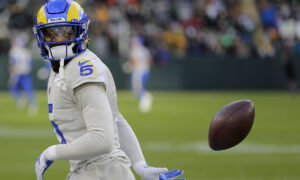In the summer of 2000, I was 17 years old and nothing more than a late bloomer. I had no game, no power, no football skills. I certainly didn’t have the physique of an NFL linebacker. That’s when I began taking random gym classes, mostly for the free weights. I never really cared for sports in high school, but I was curious about what it would be like to be a part of a team and the camaraderie of a locker room. I put in the gym time, went home, and, after a few weeks, began to notice that my arms were starting to develop. I used to have very small arms but over the next few months, my arms grew bigger and bigger. I
Steve Mesler is a former ISSA World Championship Powerlifter competing in the over 100kg class. His competition weight is currently in the upper 140kgs, and his personal best is currently at 173kgs.
Steve Mesler is a former NFL player who has been competing in powerlifting since 2004. He currently holds the American record in the deadlift event with a weight of 750 lbs. He is also an accomplished powerlifter, squatting over 600 lbs and bench pressing over 400 lbs. Steve Mesler is also the co-owner of a Powerhouse Gym in Aberdeen, NC. Steve Mesler is a member of the American Powerlifting Union and the North Carolina State Powerlifting Association.
In 1959, the United States won their last bobsled championship. They haven’t been able to duplicate this feat in 50 years. Until Steve Mesler and his group arrived. It’s time to slam the brakes on the 90 mph tale.
Do you recall what occurred in the United States in 1959?
- Pantyhose, the BIC pen, Barbie, the microprocessor, and the aluminum beer can were all developed during this time period.
- Maxwell House debuted the Good to the Last Drop advertising campaign, a billion-dollar Spam box was sold, and Metrecal was introduced as a weight-loss product.
- The typical American earned $91.53 per week, had a $5,016 yearly income, and purchased a house for $30,000.
- Milk was $1.01 a gallon, a T-bone steak was $1.09 a pound, and a loaf of bread was $0.20, not much less than gasoline, which was $0.25 a gallon.
- The last time an American four-man bobsled team won the World Championships was in the year 2000.
Steve Mesler, an American bobsledder, wasn’t even born in 1959, yet he is familiar with the year.
He isn’t simply looking to win. He wants to alter the course of history.

50 years in the past
He established a record with colleagues Steve Holcomb (driver), Justin Olsen (pusher), and Kurt Tomasevic (brake): Team USA won the 2009 World Cup for the fifth time in five decades.
Even better, by the conclusion of the four circuits, he had a huge advantage of little under a second. It must be persuasive if you wish to leave an indelible imprint on history.
The pictures from the most recent winning race are shown here.
Steve and his team are now unstoppable, accelerating like a sled on an icy track. The two-time Olympic champion aims to repeat history in the upcoming Olympic year after earning silver in the pre-Olympic World Cup test race on the new Olympic track in Whistler.

Following his triumph, Steve embraces his father.
From one direction to another
Steve’s eyes were opened for the first time when he began sports at the age of twelve. In high school, he was an All-American, and at the University of Florida, he was a decathlete.
His lengthy career as an excellent athlete in sports has transferred well to the bobsled, and he has benefited from this training as a member of the United States bobsled team for the last nine years.
Despite his innate ability to walk, Steve’s first-place victory at the Junior Olympic Championships inspired him to concentrate on his training. He medaled in two sports the next summer after spending a harsh winter in Buffalo boxing and athletics in his parents’ garage.
A few years later, he switched to bobsleigh, which was a logical step. The training for bobsleigh is comparable to that of a football player or a 100-meter sprinter.
These athletes must be very quick, but they must also be of a particular size and strength. Sprints, cleans, hurdles, and squats are all part of the exercises, which are designed to improve strength and speed.
Don’t tell Coach Stuart McMillan, but Steve thinks bobsled training is better than decathlon training!
Drive at top speed
The training burden of bobsleigh competitors is very light during the competitive season. Three days in the gym and three days on the bobsleigh track are required.
G-forces are a tremendous struggle for the athletes as they descend a mile of ice and make 15-foot spins at 90 mph. In full training mode, it’s just not feasible to refuel and then recuperate.
Training has resumed as the 2010 Olympic season approaches. On Monday and Friday, Holcomb’s USA 1 squad will train twice a day, with one practice session on the other days of the week.
The American squad is a member of the 8pac international training organization. Athletes from the United States and Canada, including world champions, Olympic medalists, and competitors, as well as aspiring athletes, train together in Calgary, North Carolina, under the direction of seasoned coach Stuart McMillan.
They’re hungry, and Steve continues to be inspired and amazed by their passion and work ethic.

JB’s Taco Bell to JB’s Taco Bell
Despite this early lesson in the importance of training, it took Steve a few years longer to understand that eating Taco Bell before training would not help him progress on any track.
Steve made great academic success during his first year at the University of Florida. Coach Gerry Clayton was a nutritionist who taught Steve the fundamentals.
Steve has devoted his whole training regimen to improving his nutrition since then. He started following the JB diet plan after meeting John Berardi in 2003: all meals include a healthy amount of protein, carbs before and after exercise, and excellent fats at all other meals.
His dietary plan not only supports his health and recuperation in order for him to perform at his best, but it also teaches him discipline. All other elements of training come into place thanks to the framework of a solid diet plan.
This is how most days go:
- 8:30 4-5 eggs/egg protein, 2 servings dry cottage cheese, fruit, and green tea for breakfast
- During and after the training: JB 40g protein, 90g Gatorade, 800ml water, creatine, and beta-alanine shake
- 14:00 hours After the training, have lunch: Large spinach salad with mixed beans, nuts, and fruit in a sesame and ginger vinaigrette; meat protein (chicken, beef, steak, fish) with couscous or multigrain bread.
- 17.00: a light snack
- Unless you’re tired after your exercise, supper around 7pm – 8pm should be comparable to dinner, with no extra starchy carbs.
- At 10:00 p.m., have a snack of dry quark and fruit with a smoothie (whey and lactose free milk)
Steve’s Olympic objectives include the use of workout supplements. In reality, after departing owing to changes in manufacturing methods, he is now searching for a new supplement sponsor.
But what advise does he have for young athletes? Rather of taking supplements, aim to obtain all of your nutrients from your food.
I believe that the human body absorbs food that has been consumed for thousands of years far better than what we have learnt to manufacture in recent decades. Eat, food, and more eat! Consider supplements if you’ve hit a training or weight-gain plateau that you can’t break through with diet alone.

Is dried curd a bobber’s superfood?
Dried curds, perhaps?
Steve is a huge fan, in case you didn’t know. He realizes it’s not the most popular meal (as demonstrated by the difficulties in obtaining it! ), but he’s grown to like it.
It’s a fantastic method for Steve to obtain enough protein to support his training and performance, with 22 grams of protein per serving, low fat and salt, and no lactose.
Steve has always relied on dairy products to meet his protein requirements. He has always had at least two glasses of milk each day for as long as he can remember.
Strange symptoms have started to emerge in recent years. He had constipation, for example, which he couldn’t get rid of with medicine.
Steve and his coach started experimenting with dietary modifications. The first thing they did was eliminate dairy products, particularly those that contained lactose.
The answer was obvious after a few weeks of clean head and neck, but it presented a new problem: where would Steve obtain the additional 80 grams of protein each day?
Cottage cheese was swapped out for normal cottage cheese, lactose-free milk or goat milk was swapped out for skim milk, and goat cheese was swapped out for any other kind of dairy cheese. The transition was not simple, and it took some time to adjust to the new goods, but it was well worth the effort. He now enjoys all of these things and feels much more confident in both training and daily life.
Games of the mind
Mike Holloway, Steve’s high school athletics coach, advised him, “If you’re afraid, say you’re scared!”
The bobsled had figured out what Mike meant. Steve didn’t see the link at the time, but now he knows and applies it to everything he does.
It’s important to confess when you’re scared of anything in life or in sports. You must, however, complete the task. You may confess to being anxious, but the job that makes you uncomfortable still has to be done. So, once you’re conscious of your concerns, you can focus on what has to be done.
Bobsledding may be a frightening and nerve-wracking activity. The Olympics may be daunting and frightening.
In my sport, though, no matter what I do or say, the race starts at 5. I may be worried, anxious, or furious, but I’ll still be on the phone at 5 p.m., no matter what.
Sports and business are perfect examples of this. We know the job we have to perform, no matter how we excuse our inadequacy or self-doubt. And the world’s competitors and survivors discover a way out.
Steve has saw the sport’s darker side and what it evokes in the American psyche.
People’s willingness to go to great lengths to win has reached unprecedented heights. The cheating and doping offenses are really alarming. I’ve also seen individuals do and say things that I never imagined would be relevant to the sport of attempting to get an advantage.
That is why the Olympic movement has received a lot of negative press in recent years, and I want to be able to change that as we prepare for the Games next year. The Olympics have traditionally been held in high regard by society, and athletes’ recent acts have started to chip away at that pedestal.
I believe the Olympics can still teach lessons about overcoming hardship and fair play, and I want to be a champion in these areas while also attempting to leave behind the issues that have plagued Olympic sport.
Steve is pleased of what his squad has achieved in the last year after overcoming a 50-year drought and rewriting history.
Despite the fact that the Vancouver 2010 Olympic Games will be full of terrifying moments and difficulties, he is fully prepared to face the spins and G-forces.

Read more
Do you want to become in the greatest form of your life and keep it for the rest of your life? Check out the 5-day body transformation programs below.
Is it the best? They’re totally costless.
Click on one of the links below to read the free courses.
Related Tags
This article broadly covered the following related topics:
- steve mesler olympics
- steve mesler wife
- printable olympic medals for classroom
- bobsled records
- steve mesler bobsled











